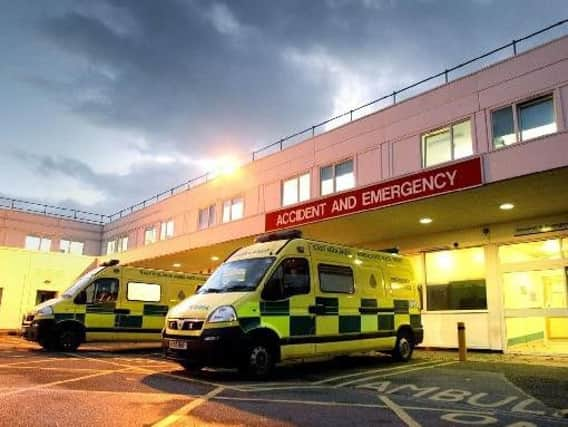NATIONAL: Ambulance delays at A&Es double


Jonathan Ashworth, Labour's shadow health secretary has been handed figures under the Freedom of Information act by 11 ambulance trusts which show the number of patients increased from 51,115 in 2014-15 to 111,524 in 2016-17.
According to the figures, more than half a million people waited more than 30 minutes to be transferred, up from 289,264 to 509,062 in the same period.
Advertisement
Hide AdAdvertisement
Hide AdSouth East Coast Ambulance Service saw a rise of more than 300 per cent in delays of more than one hour.
The figures come after handover delays at the Queen Alexandra Hospital in Cosham were deemed 'unacceptable' by South Central Ambulance Service's (Scas) council of governors.
A meeting last month revealed that Scas lost 551 hours to delays at the hospital just in August.
Mr Ashworth said: 'I think this research is incredibly shocking and reveals that our hospitals in many situations are overcrowded and overwhelmed.
Advertisement
Hide AdAdvertisement
Hide Ad'It is because the government, I'm afraid, are not putting in the funding that our NHS needs.
'We are saying to the government, to Jeremy Hunt (health secretary), to Philip Hammond (chancellor), you've got a budget coming up, you can do something about this.
'Put that extra investment into our NHS so that patients can get the level of care they deserve.'
The Department of Health said that NHS England and NHSI (NHS Improvement) are working to reduce handover delays and that they have recruited 2,600 more paramedics since 2010.
Advertisement
Hide AdAdvertisement
Hide AdA spokesperson said: 'In the face of huge increases in demand, our paramedics and call-handlers are working exceptionally hard and answering 4,500 more 999 calls every day compared to five years ago.'